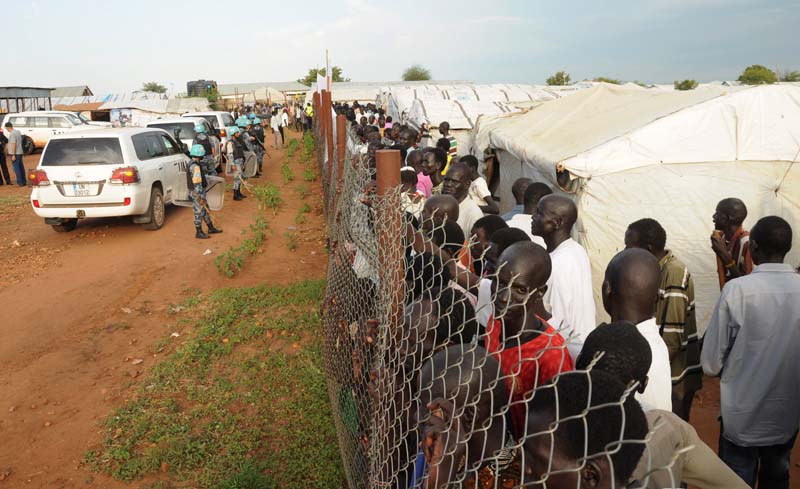Under pressure, South Sudan agrees to 4,000 new peacekeepers
JUBA: South Sudan has agreed to the deployment of a 4,000-strong regional protection force approved by the UN Security Council after first rejecting the peacekeepers as a violation of its sovereignty.
Sunday's announcement came after the Security Council met with South Sudan President Salva Kiir during a rare visit to the turbulent East African country.
The threat of an arms embargo loomed over the meeting, as the council has said it would pursue one if South Sudan didn't accept the additional peacekeepers. The UN already has 12,000 peacekeepers in the country, and South Sudan has been wary of giving it more authority.
"The Security Council came to achieve what we have secured," US Ambassador Samantha Power said.
Protecting civilians has become an even more critical issue after fighting erupted in the capital, Juba, in July, killing hundreds and sparking fears of a return to civil war in the already devastated country.
Both civilians and foreigners, including aid workers, were targeted in the July chaos by South Sudanese soldiers who raped women and girls, conducted mock executions and forced people at one hotel compound to watch a local journalist be shot dead.
Challenges already lie ahead for the 4,000 additional peacekeepers, who are tasked with protecting civilians in Juba and perhaps beyond. UN officials say the new force needs more than two months to deploy.
And Senegal's ambassador to the UN, Fode Seck, said there has been difficulty getting enough troops pledged by regional countries that will make up the force. The council meets with African Union officials in Ethiopia on Monday.
In his meeting with the council, Kiir said none of South Sudan's immediate neighbors could contribute troops to the force, a senior UN official and a council diplomat said. They spoke on condition of anonymity because the meeting was intended to be private.
South Sudan also committed to implementing a hybrid court to investigate war crimes, according to Sunday's joint statement by the government and the Security Council.
Both government and rebel forces have been accused of widespread abuses in the civil war that began in December 2013 between supporters of Kiir, an ethnic Dinka, and former Vice President Riek Machar, a Nuer. Tens of thousands of people have died.
Ethnic tensions remain. Kiir told council diplomats that the UN peacekeeping mission's neutrality has been compromised because its camps that shelter tens of thousands of South Sudanese mostly are protecting supporters of the opposition, the UN official and council diplomat said.
Kiir also said his rival, Machar, who fled the country after the July fighting and is now in neighboring Sudan, can't return to the country until the next election cycle, the UN official and diplomat said.
"Fundamentally, it's going to be the tribes themselves and the political leadership of this country that are going to have to come together," Power told reporters.






